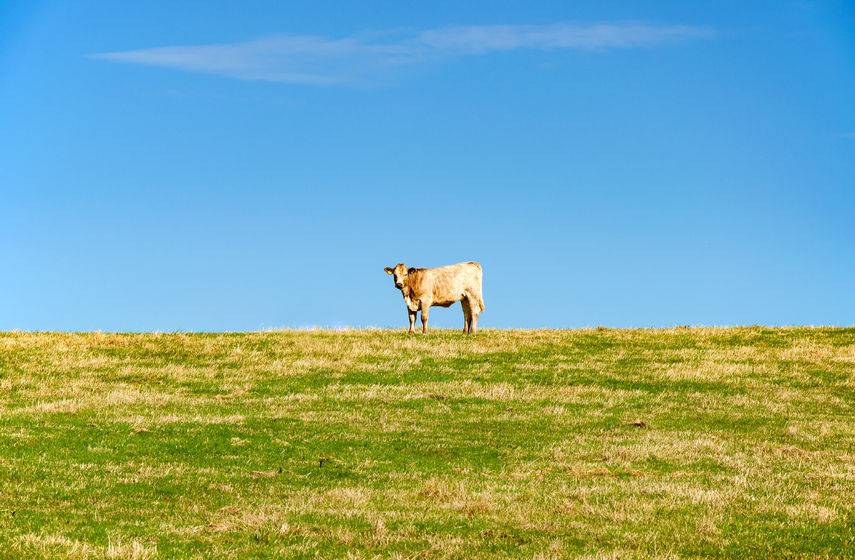
Northern Ireland meat industry could decline by 21%, with exports to the EU "collapsing" by over 90%, if the UK reverts to WTO trading conditions in the event of a failure to agree a post-Brexit trade deal with the EU.
The beef and sheep industry body for the region fears huge losses from any switch to World Trade Organisation (WTO) rules after Brexit, saying a transition much longer than the two years offered by Prime Minister Theresa May would be required to minimise disruption.
The body has thus called for a five-year transition period after Brexit, putting pressure on the Democratic Unionist Party, on whose votes Theresa May’s government depends for a parliamentary majority.
These are the findings of a new report commissioned by the Livestock and Meat Commission.
The report gauged the impact on the Northern Irish beef and sheep meat industry of moving from EU to World Trade Organization (WTO) trading conditions under two scenarios.
Two scenarios
The first scenario is what the report calls "WTO Equivalence", where the UK and EU impose reciprocal tariffs on each other’s imports based on the current EU Common External Tariff, as well as an assumption that there would be mutual recognition of veterinary and other technical standards.
The second being an unilateral "Open-Door" trade policy whereby the UK reduces its tariffs on imports from major agricultural producers but without any reciprocal agreements in place.
The report found that if the UK adopted a unilateral Open-Door trade policy, Northern Irish beef and sheep meat output would decline by 21%, as exports to the EU collapsed by over 90%.
However, even under WTO Equivalence, whilst output could rise marginally in the short-run, as domestic consumption displaced EU imports, gains would be eroded by declining consumption in the longer-term due to higher prices, and exports to the EU would still fall by over 90%.
Tariffs
The report also found that tariffs for meat sales are substantial, ranging from 40% to around 100%.
Non-Tariff Barriers (NTBs) are estimated to amount to a 3% tariff equivalent under WTO Equivalence and 5.7% under an Open-Door trade policy.
The report states that farm profits decline in both scenarios, particularly when combined with reductions in farm subsidies.
The report concludes that if an Open-Door trade policy was adopted, the viability of beef and sheep farming across large swathes of Northern Ireland would be seriously threatened, with grave consequences for the wider Northern Irish rural economy.
The report makes recommendations for policy-makers. It said they should agree interim Single Market (EEA) and Customs Union membership for at least 5 years post-Brexit to negotiate the "finer details" of the eventual deal.
It said this would allow policy-makers to develop the required infrastructure, with a mid-way review to examine whether enough progress has been made.
'Cyprus-type model'
As a last resort, the livestock commission said a "Cyprus-type model" for cross-border trade should be considered if WTO trading came to pass.
This is because the island of Cyprus is within the EU, but only the southern half is recognised as within the Single Market.
Consequently, there are special rules regarding the trade of goods between the southern half and the Turkish Republic of Northern Cyprus.
However, the report also notes that whilst a Cyprus-type model could help to facilitate trade reasonably close to existing levels, potential obstacles remain.
'Costly and disruptive'
Commenting on the report LMC Chief Executive Ian Stevenson said the report shows that WTO trading conditions would be "complex, costly and disruptive".
“The most viable solution for safeguarding the future of the industry is not only a UK-EU post-Brexit comprehensive free trade agreement, but until then to have a 5-year transition period with a mid-way review, to avoid an interim deal simply being a stay of execution for the industry,” Mr Stevenson explained.
Michael Haverty, lead author of the study, said an Open-Door trade policy would have a "devastating impact" on the industry both domestically and internationally.
He said: “Whilst a Cyprus-type model highlights the need for contingency planning, the ideal outcome remains avoiding WTO trading conditions by agreeing interim Single Market and Customs Union membership for 5 years post-Brexit, incorporating a mid-way review, to negotiate and implement a more considered longterm agreement.”
